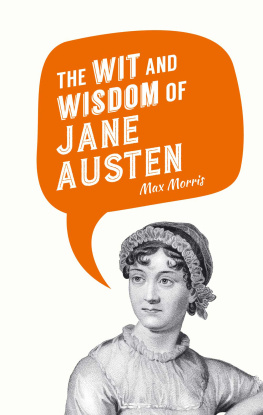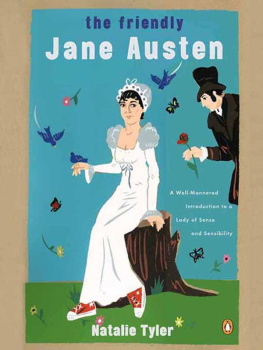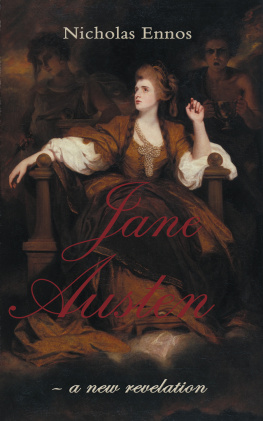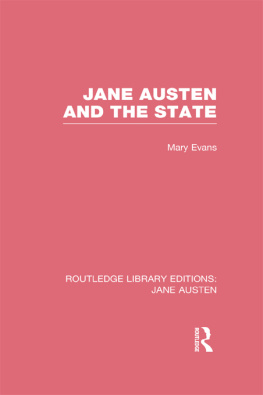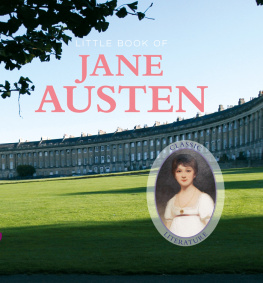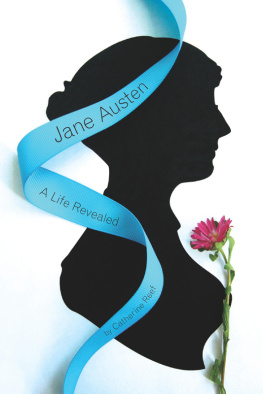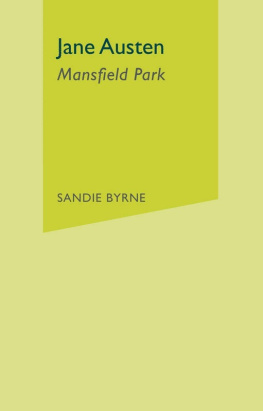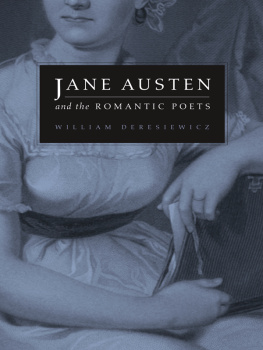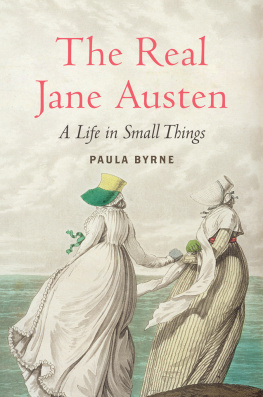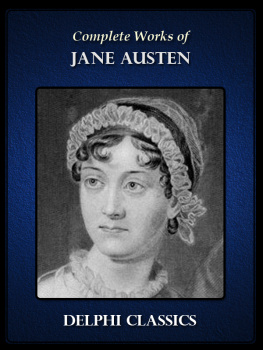In 1704, the presumed heir to the Austen family fortune, John Austen, lay dying of consumption at the age of thirty-four. He was leaving behind seven children and was troubled by what might happen to his daughter and five younger sons. He was his fathers only son, but he feared that his father, also named John Austen, would now leave everything to the eldest grandson and do little to provide for the other children.
Old John Austen was in the wool trade, as the family had been for several generations, providing wool to weavers, overseeing the processing of the cloth, and selling the finished product to cloth merchants. The business was run from workrooms in their large house in the village of Horsmonden in Kent. But the old man had decided that with his son the time had come to leave the trade behind and had brought up young John as the heir to a large fortune. When, after his sons death, old John made his last will he referred to himself as John Austen, Clothier, but to his late son as John Austen, Gentleman.
Young Johns widow, Elizabeth Weller, later wrote an account of the family circumstances so that her children would know exactly what had happened. She believed her father-in-law had made the eldest son rich and left the other children but as if servants.
Even in a society in which primogeniture was an established tradition, Old John Austen, though, was determined to make his eldest grandson rich and to leave the other children to make their own way in the world.
Jack was only nine years old when his grandfather died and would not have personal control of his inheritance until he was twenty-one. Elizabeth hoped that he would undo what she considered the injustice of her father-in-laws will when he came into the property. This hope must have been her principal motive in writing the document she endorsed as Memorandums for mine and my Childrens reading, being my own thoughts on our affairs 1706, 1707, a rough draft in a retired hour. When Jack reached the age of twenty-one, he would have a choice. He could keep everything for himself as his grandfather had wanted, or he might accept an obligation to provide for his sister and brothers as his father had wanted him to do.
Elizabeths father-in-law had foreseen the possibility that she might try to persuade Jack to diminish his wealth by helping his siblings, and he designed his will to prevent this. The will demanded that the boy be removed from his mothers care and placed under the guardianship of his uncles Stringer and Holman. If Elizabeth refused to give Jack up, which she had a legal right to do, the boy would receive no income from his inheritance until he was twenty-two. In her already straitened circumstances, with six other children to bring up and very little money for the purpose, Elizabeth could not afford to undertake the support of her eldest son, so she had to agree to his being separated from her and the other children.
In her father-in-laws eyes she was the enemy because she wanted Jack to provide for his sister and brothers. As Jacks mother she would have the power to influence him to consider this his duty. Having Jack removed from her care was meant to put an end to her influence. But it also cut Jack off from his siblings, leaving little opportunity for forming bonds of affection that would make him want to help them. The deepest evil of the old mans will was not its material injustice but its studied intention of destroying the affection that unites a family into a single entity. The scheme was successful.
Jack seems to have been indifferent to the plight of his brothers and sister. He alone was his grandfathers heir; he alone was to be rich; he alone was to be a gentleman. He was educated by tutors and was sent to Cambridge, as befitted a gentleman of means. At the age of twenty he married his first cousin, a daughter of his guardian uncle Stringer. He died even younger than his father had, and left only one son, who inherited the fortune. Jacks only son was long-lived, not dying until 1807 at the age of ninety-one. He had failed to produce a son, and his only child, a daughter, had died unmarried. He left the fortune to a grandson of his fathers second brother.
When Jane Austen heard about the will of Jacks son (also, as usual, called John) in 1807, she wrote to her sister, Cassandra:
We have at last heard something of Mr [John] Austens will. It is beleived at Tunbridge that he has left everything after the death of his widow to Mr Motley Austens third son John; & as the said John was the only one of the family who attended the funeral, it seems likely to be true. Such ill-gotten Wealth can never prosper!
Jane seems to have known the whole sorry story, begun when the family fortune had been in one stroke transformed into the ill-gotten wealth of a single individual.
Elizabeth Wellers widowhood was hard, but she triumphed and emerges as a figure who accomplished much without sacrificing her integrity. She had great strength and ingenuity. She put off the brocade and pearls she had worn for a portrait painted in her earlier days, and providing for her children became her life. She perceived that her husbands plan to see that the children were well-educated was not just desirable but now essential. She made their education her duty:
It seemed to me, as if I could not do a better thing for my childrens good, their education being my great care, and indeed all I think I were capable of doing for them for I always thought if they had learning, they might the better shift in the world, and that small fortune was allotted them.
Educating the children was not easy. There was no school in the neighbourhood so they would have to move to a town with a school. To pay for the move and meet the school fees, she had to find a way to supplement her income. With few possibilities of earning money open to a woman, she decided the only feasible way would be to take in boarders.
An elegant solution to her problem presented itself. Sevenoaks School offered its schoolhouse, as she calls it, for rent to anyone who would agree to board the master and a few pupils. She undertook to keep the school boarding house at Sevenoaks and negotiated an agreement with the school for her sons to receive free tuition. The boys got a solid education, and Elizabeth later scraped together the money to pay the difference between the 40 their grandfather had left each boy and the real cost of a good apprenticeship. Of the four apprenticeships recorded for the boys, three cost more than 100 and the fourth 60.
Elizabeths daughter, Betty, the eldest child, probably received little if any formal education. The school was only for boys. Already about fifteen when they moved to Sevenoaks, Bettys main role was probably to help her mother with the housekeeping. There is no indication in Elizabeths account books that the girl received any instruction. Limited as the prospects of her brothers might be, Betty was in the most difficult position. With hard work the boys might eventually achieve economic security, even affluence, but as a woman in the early eighteenth century Betty could not expect to earn anything beyond her keep. Her only real prospect was to marry.


